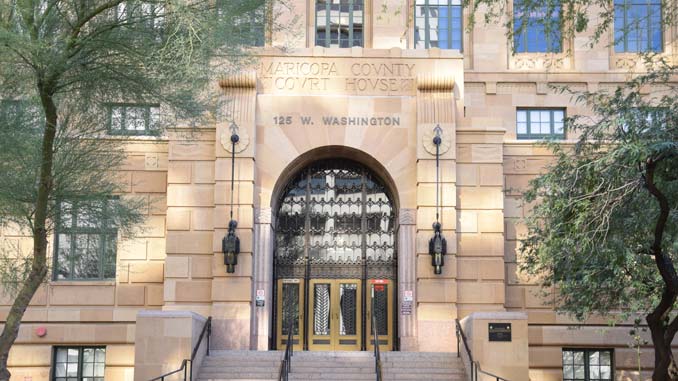
This year several judges from various courts are on your November ballot. As always, it is a daunting task to decide who to retain and why. One of the most frequent questions I receive is “Where Do I Find Information on Judges and How Do I Decide?” Here are the tools I use when I am considering judges:
My first stop is to the Arizona Judicial Performance Review (JPR) website. There you will find information on judges who are merit selected and up for retention re-election. The website reviews performance standards and reviews of judges on the Arizona Supreme Court, Court of Appeals Division 1, Court of Appeals Division 2, Coconino Superior Court, Maricopa County Superior Court, Pima County Superior Court and the Pinal County Superior Court.
You can access the retention vote scorecard and the individual Judicial Reports with attorney surveys, juror surveys and witness surveys.
This information does not tell you about the decisions made or opinions authored by the judge or justice, only overall performance according to the JPR standards.
To learn more about the thought process of a judge or justice, you will need to look them up on the court website for the court on which they sit. Once on that website, look for opinions authored by that person. Read and understand their reasoning.
You may think you aren’t able to discern an opinion’s “correctness”, but really if you stay with the basics of the U.S. Constitution and the Arizona State Constitution you will have a good start. Both Constitutions maintain certain rights are basic to individuals and both assert rights reside in the people and the people give permission to the government to act in certain ways. The overall theme in both Constitutions is government is there to protect individual natural rights.
With that as a basis, you can reason through your assessments of decisions and opinions. After you have read a few decisions authored by the person (1-4), then look at opinions in which they signed on to the majority or minority opinion authored by someone else. By definition they signed on because they agree with the reasoning, so that is another indicator of how that judge or justice thinks.
With all that said, you may still not feel able to assess a judge or justice. I suggest watching two YouTube videos in which Supreme Court Justice Antonin Scalia informs us on how to judge a judge and how to read and interpret the law.
Justice Scalia on Judges is a short 1:42 video clip of a longer interview C-Span conducted with Justice Scalia. I recommend going to C-Span and watching the full interview, but the 1:42 will help you for now.
The second video is a 10 minute interview of Justice Scalia on PBS News Hour in which he describes how to read and interpret a law. This interview was based on Justice Scalia’s book Reading the Law: The Interpretation of Legal Texts.
If you can’t find an opinion or case you feel informs you of the judge or justice’s thinking and reasoning, then you will probably be able to find something on a local newspaper website. Articles about significant cases in your area can be a helpful starting point.
Yes, judging judges is time consuming. If you are in Maricopa County you have 55 judges to judge. But, think about it… They are enormously important to our lives, our businesses and the preservation of our civil rights. The court system acts as a check on both the legislature and the executive branches of government. They strive to preserve the original foundation of individual rights while balancing government’s inevitable desire to diminish those individual rights.
Aristotle suggested using the tools of discernment and prudence when making judgements. I suggest you and I use those same tools.
From time to time WeSERV has interviewed and endorsed Justice of the Peace candidates. Because the judge sitting at the local justice court needs to understand and respect basic contract law principles and weigh damages done to both the property owner and the tenant in an eviction case. It is a basic building block of private property rights, that two people can come to a meeting of the minds and execute an agreement they are both responsible to.
So, yes, from a professional viewpoint and personal viewpoint, judges are important. Take your time,and assess them. It is your tool to impact and influence the judicial system to stay true to Constitutional principles, bringing certainty to business and individuals.
